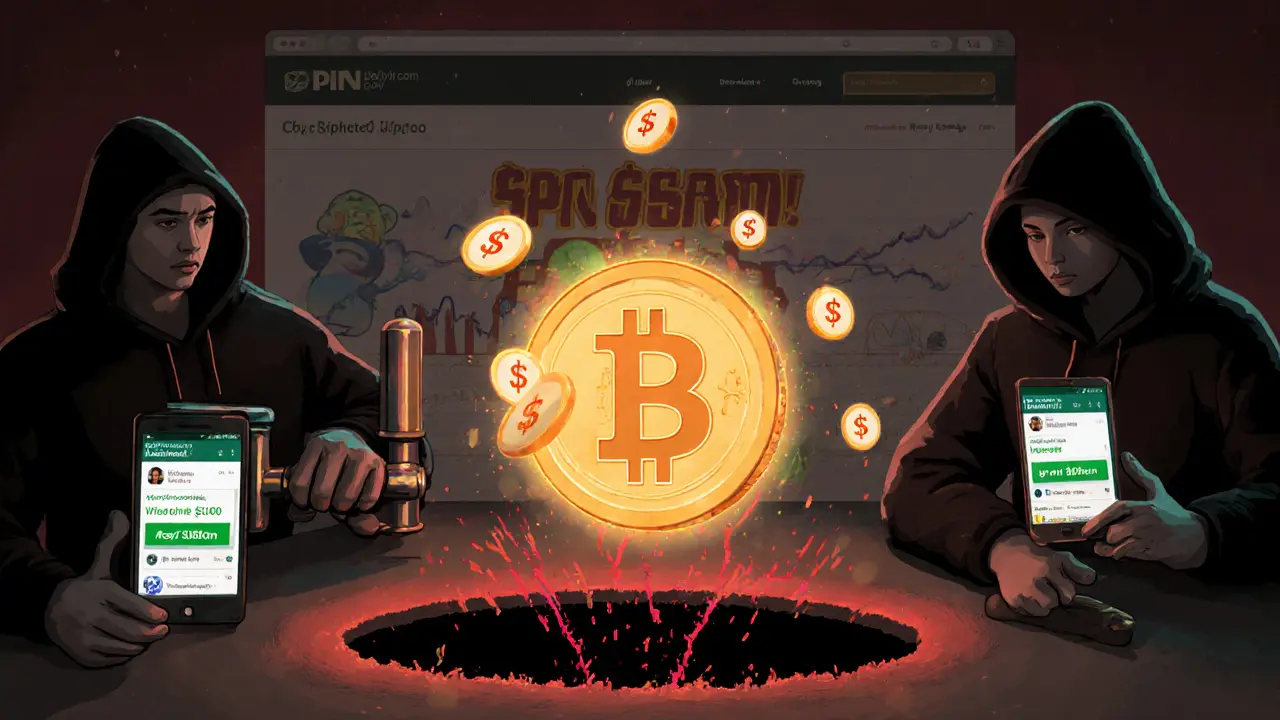Cryptocurrency Scams 2025: How to Spot Fake Airdrops, Rogue Exchanges, and Hidden Traps
When you hear cryptocurrency scams 2025, fraudulent schemes designed to steal crypto funds by exploiting trust, urgency, or ignorance. Also known as crypto fraud, these scams have evolved from simple phishing emails to sophisticated DeFi traps that look like real platforms. The biggest threat isn’t hackers breaking into wallets—it’s you being tricked into giving up your keys willingly.
Many scams today hide behind fake crypto airdrops, promises of free tokens that require you to connect your wallet or pay a gas fee. Also known as free crypto traps, they often use fake websites mimicking CoinMarketCap or official project pages. Look at the posts below—projects like CHIHUA and SUNI were never real, yet people still lost money trying to claim them. These aren’t bugs in the system—they’re features of the scam. Then there are fake crypto exchanges, platforms like SkullSwap, Blockfinex, and Kalata Protocol that appear active but have no liquidity, no audits, and no real users. Also known as decentralized exchange scams, they lure traders with high leverage or low fees, then vanish overnight—or worse, drain your wallet the moment you deposit. Even DeFi rug pulls, when developers suddenly pull liquidity from a token pool and disappear with millions. Also known as yield farming scams, they’re often disguised as high-APY farms like Sphynx Labs or Levana Protocol, which collapsed after their teams vanished and trading volume hit zero. And don’t forget crypto asset forfeiture, when governments seize crypto not because you broke the law, but because you used a sanctioned exchange like Garantex or Exved. Also known as crypto confiscation, this isn’t theoretical—it’s happening right now to people who didn’t know their exchange was illegal.
You won’t find these scams on Reddit threads or Telegram groups alone. They’re advertised on Twitter, YouTube, and even fake news sites that copy real crypto media. The smartest scammers don’t promise 1000x returns—they promise safety, speed, and simplicity. They copy the design of Changelly Pro or STON.fi v2. They use real-looking team photos and fake audit reports. The only way to protect yourself is to check: Is there real trading volume? Is there a public team? Has it been audited by a known firm? Or is this just a website with a token name and a countdown timer?
Below, you’ll find real reviews of platforms that looked legit but turned out to be dangerous. Some were outright scams. Others were barely alive. All of them cost people money. You don’t need to be a technical expert to avoid these traps—just know what to look for before you click "Connect Wallet" or "Claim Your Tokens."
Spin Crypto Exchange Review: Is It Legit or a Scam?
Spin Crypto Exchange is not a legitimate platform-it's a scam. No trusted sources list it, and victims report losing thousands after fake profits turn to nothing. Learn how the scam works and which real exchanges to use instead.
